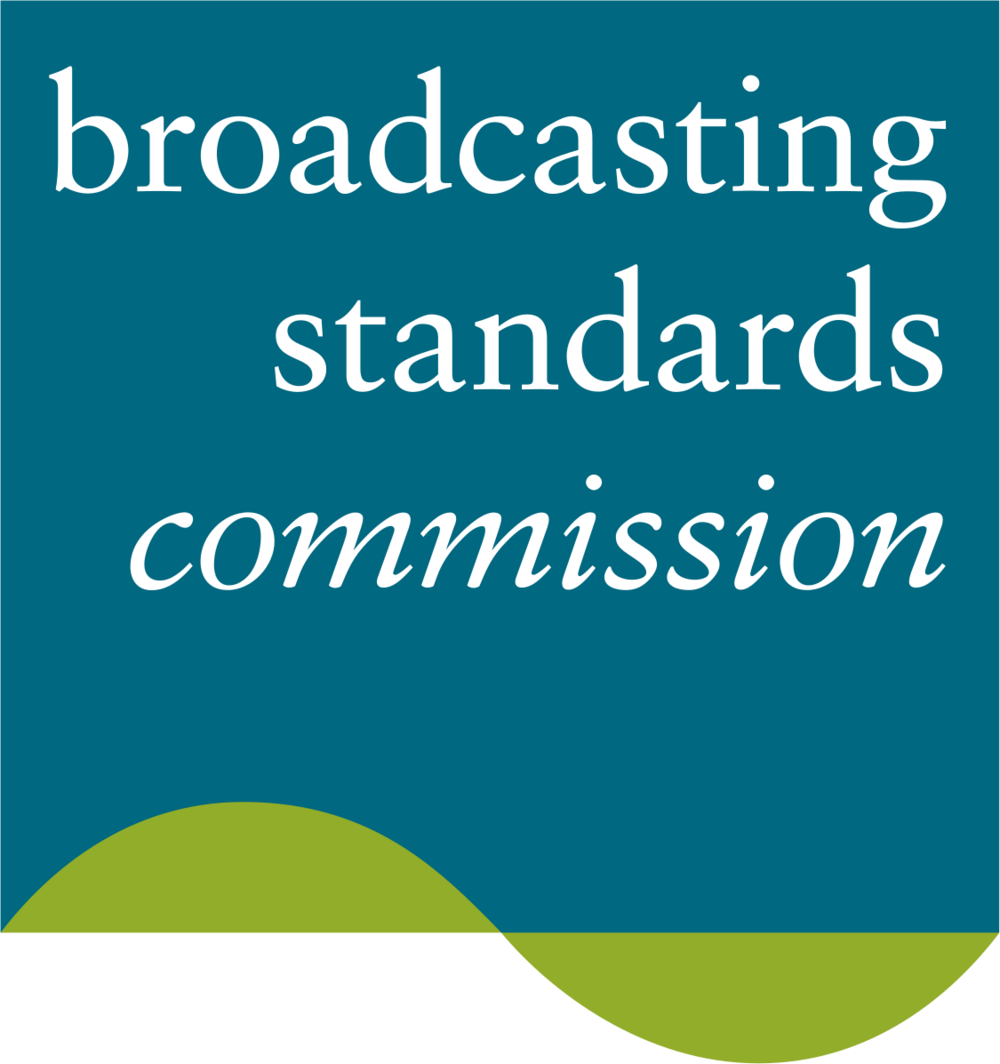Broadcasting Standards Commission (partially found British broadcast communication regulator statements; 1981-2003)
Broadcasting Standards Commission (BSC) was an official British communication services regulator. It was created following the merger of Broadcasting Complaints Commission (BCC) and Broadcasting Standards Council on 1st April, 1997, as part of the Broadcasting Act 1996. It was one of a few regulators responsible for enforcing broadcasting standards and fairness across television and radio. Notably, BSC and BCC would respond to complaints made concerning violations of standards and fairness, with many summaries of adjudications being broadcast on the involved television channel that would detail the regulator's findings.
Background
BCC operated from 1st June, 1987 to 1st April, 1997 before being merged with Broadcasting Standards Council to create BSC. BSC at the time was the only UK regulatory framework maintaining standards and fairness across all television and radio platforms, including terrestrial, cable, satellite, and digital services. As part of the Broadcasting Act 1996, it established Codes of Guidance concerning upholding of standards and fairness, enforced by considering and adjudicating on complaints, and reporting on violence, sexual content and bad language on programming and advertisements. It completed these tasks until 29th December, 2003, when it, along with four other regulatory boards, including the Independent Television Commission, were merged to form Ofcom.[1]
Anyone that viewed or heard a broadcast were allowed to write to BCC and BSC to complain about its content. Particularly, portrayals of violence, sexual content and issues that may otherwise be below standards of taste and decency, may attract Commission investigations, with the material and its context compared to the Standards Code.[2] Additionally, people with direct interest in broadcasts, e.g. individuals and companies that appeared or were referenced in the programming, can also complain if they felt they were unfairly treated or had their privacy infringed without warrant.
In the event the Commission believes a case should be of relevant public knowledge, e.g. if it is upheld or partially upheld, the Commission can direct the involved broadcaster to publish summaries of adjudications during broadcasts, and in newspapers and magazines.[3]
Availability
The archived list of Bulletins, which details every complaint made to the Commission, indicates many broadcasts were made thanks to the complaints being fully or partly upheld.[4] However, most summaries of adjudications by both BCC and BSC are lost media, because the findings are seldom repeated beyond their initial broadcasts, and would typically be of non-interest for the majority of viewers outside the complainants. Nevertheless, some summaries from both regulatory bodies have resurfaced online, being typically recorded by viewers at the time as part of Continuity videos popular among some television enthusiasts.
Gallery
See Also
External Link
References
- ↑ Ofcom providing a history of BCC and BSC. Retrieved 28 Sep '21
- ↑ Archived BSC page detailing how complaints were conducted, often resulting in upheld cases being broadcast as summaries. Retrieved 28 Sep '21
- ↑ Archived BSC page detailing how complaints about Fairness were conducted, often resulting in upheld cases being broadcast as summaries. Retrieved 28 Sep '21
- ↑ Archived list of BSC Bulletins, detailing all upheld and partly upheld broadcasts, many of which would later be broadcast. Retrieved 28 Sep '21
